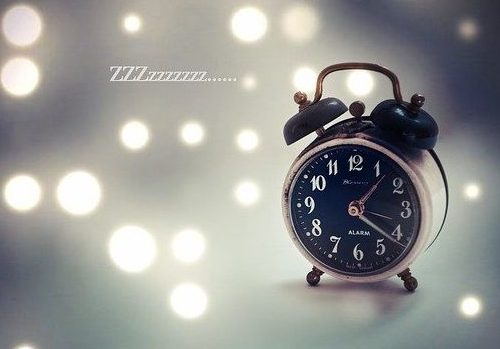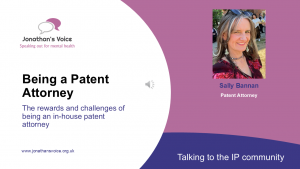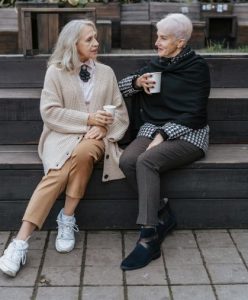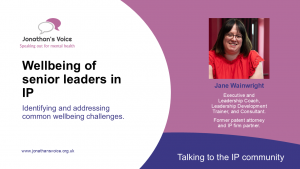The article below about sleep was first published in the May edition of the CIPA (Chartered Institute of Patent Attorneys) Journal.
It was written in the very early days of the pandemic. Since then, many impacts on people’s lives have become apparent. One of them is the impact on sleep. It has been noted that difficulty getting to sleep, difficulty staying asleep and vivid dreaming have been widely reported across the population. Professor Colin Espie, who is referenced in the article below, is leading an international group of researchers at the University of Oxford to investigate the impact of the COVID-19 pandemic on sleep and daily rhythms in adults. You can read more about the research project by following the link below where you can also sign up to take part in the study http://www.ox.ac.uk/news/2020-06-12-oxford-researchers-lead-international-study-effects-covid-19-sleep
The article begins..
“Sleep is the unsung hero for our mental health,” says Mark Rowland, Chief Executive of the Mental Health Foundation. So it’s great to see that sleep is the focus of this year’s Mental Health Awareness Week (18-24 May) https://www.mentalhealthawareness.org.uk/post/mental-health-awareness-week-1
It’s a particularly relevant topic at the moment when working practices have changed as the result of the measures needed in the light of the Covid-19 pandemic. There will also be many anxieties; familiar patterns have disintegrated, concerns about friends and family, the challenges for some of remote working and what businesses and employment will look like in the future. Such concerns have the potential to have an impact on our well-being, including sleep.
“Get a good night’s sleep” is still great advice. But it’s not always that easy, particularly in times of uncertainty. Working from home can itself bring its challenges; not having a regular routine, doing too much work, not needing to leave the house so missing out on fresh air and exercise. All these have the potential to have an impact on night time sleep, so it’s good to have a routine and get out for some fresh air each day.
It’s not great being awake in the early hours and longing to be asleep, perhaps dreading the next day for fear of being unable to cope in an exhausted state. People at every level recognise the need to sleep well for effective performance. Top sports people have resorted to sleep gurus as reported in a recent article in The Times. Nick Littlehayes, one such guru, has worked with Team Sky cyclists, Formula One drivers and elite athletes. He is quoted as saying, “In today’s world there are infinitely more pressures that we put on ourselves with our 24/7 society, with the knock-on effect being that sleep is something that suffers.”
As some readers may be aware, we are collaborating with the Charlie Waller Memorial Trust to write a booklet that is specific for patent and trade mark professionals. It is entitled, “Protecting your Mental health and Well-being”.
In the course of working with mental health professionals to develop the content of the booklet, a potentially vicious circle became apparent: sleep can become a casualty when stressed, anxious or depressed, and a lack of sleep can in turn increase anxiety. We know that patent attorneys can spend much of their time getting to grips with the intellectual challenges of the work. Did you know that research has shown that finding novel solutions to complex problems can be enhanced three-fold after a good night’s sleep? So who wouldn’t want a good night’s sleep and why can it sometimes seem so elusive?
Some of the advice to improve sleep may seem very familiar, you’ve probably heard it before, but it’s important and well-worth revisiting; turn off electronic devices and screens an hour before planning to sleep, put devices into sleep mode, have a bedtime routine, avoid alcohol and caffeine and respect your circadian rhythm. Your circadian rhythm is basically a 24-hour internal clock that is running in the background of your brain and cycles between sleepiness and alertness at regular intervals. We are not designed to disrupt the natural rhythms of night and day, which if ignored can have a profound effect on how we feel and how we function. When international travel becomes a possibility again, it’s really important to consider how you set your “body clock” after a long-haul flight and jet lag. You can read more about circadian rhythm at www.sleepfoundation.org/articles/what-circadian-rhythm
Professor Colin Espie, a leading authority on sleep at Oxford University, has his five top tips for a great night’s sleep. His first is, “Don’t get caught napping during the day”. If only you had time for napping, you might think! He then lists:
- If you’re not tired, get up
- Set yourself a “get-fit” plan
- Don’t stress it
- Keep a sleep diary
These are well worth a look, particularly “Don’t stress it” and can be read in full here. https://www.mentalhealth.org.uk/publications/how-sleep-better On the same page you can read about HEAL – the four basic pillars of sleep:
Health
Environment
Attitude
Lifestyle
There are many reasons people find it difficult to sleep, some may be transitory, perhaps relating to the present crisis, and others long term. Most people have problems with sleeping from time to time but perhaps you, or someone you know, has tried, apparently unsuccessfully, all the “top tips” for a good night’s sleep, tried the excellent practical advice #BetterBedtimes https://ipinclusive.org.uk/newsandfeatures/better-bedtimes/ and are still really struggling.
If your sleep difficulties have persisted for some while and are causing you concern, it might help to visit the NHS website https://www.nhs.uk/oneyou/every-mind-matters/sleep/? or call the LawCare helpline (0800 279 6888). It may also be the time to consider professional help.









